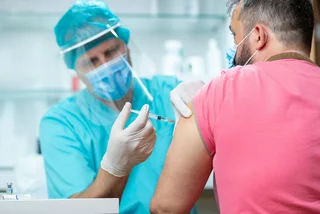Prague, Dec 16 (CTK) - The Czech Republic will have some 200 COVID-19 vaccination centers in healthcare facilities and about 5,000 doctors who will conduct vaccinations in their offices; the first vaccine should arrive in the country during Christmas holidays, Health Minister Jan Blatny told reporters Wednesday.
Blatny said the European Medicines Agency (EMA) would approve the vaccine of the Pfizer firm on Dec 21.
PARTNER ARTICLE
"The European Commission will then approve it in two days and from Dec. 24 it will be possible to distribute the medicines. If this happens, the first doses will reach Czechia already during the Christmas holidays. The vaccination will be launched immediately," Blatny said, adding that about 10,000 doses would be available then.
Prime Minister Andrej Babis said in the Chamber of Deputies Wednesday that the state should have started educating citizens about the need to get vaccinated. He said the Health Ministry information campaign about vaccination was delayed.
"We should have been convincing the people for a long time that the solution to this terrible situation that all of us are experiencing this year is vaccination. Only vaccination," Babis said.
The first persons to be vaccinated will be medical personnel from hospitals which treat coronavirus patients in serious condition. The vaccines from the first delivery will be distributed to all regions of the Czech Republic.
"The Health Ministry has a clear order -- the vaccine will arrive to the storeroom, be distributed to all regions, there will be cars from individual regions waiting, they will deliver it and the vaccination will finally begin," Babis said.
In Prague, people will be vaccinated at the Prague-Motol University Hospital and the General Teaching Hospital in December. Babis said Prague would get 1,204 vaccines from the first delivery. Further vaccines from Pfizer would be delivered directly to 29 distribution centers, he told journalists.
MP Vit Kankovsky, who is a member of the Central Crisis Staff, said Babis confuses the public if he declares that Czech Republic is well prepared for the vaccination. He said only about one third of the logistics have been prepared.
In January, an additional 250,000 vaccines approved for the EU will arrive in the Czech Republic.
According to the opposition parties and regional governors, the vaccination strategy is not detailed enough and it does not deal with some crucial issues.
A country with a population of 10.7 million is slated to get the vaccine for 6.9 million people in total. The Czech vaccination strategy reckons with vaccines for one million people in the first quarter of 2021, for 2.62 million in the second quarter, for 2.42 million in the third quarter, and for 0.38 million in the fourth one.
Further vaccines will be available in 2022. A survey showed that 40 percent of the population wants to get vaccinated and 20 percent is undecided.
Blatny said the state can secure the use of all the vaccines that arrive in the first delivery as about 300 people per day would be vaccinated in one vaccination center.
Blatny said the same goal can be reached by different paths. Some countries have built vaccination halls, but Czechia will vaccinate in its hospitals, he said.
The health personnel, elderly and chronically ill are to be vaccinated in the first stage. The health staff treating seriously ill with COVID-19 will be the first group to be vaccinated, Blatny said.
About 5,000 doses of the vaccine from the firm Pfizer are to be shipped to Prague, specifically to the Teaching Hospital in Motol, and 5,000 to Brno, he added.
A manual is being prepared for the vaccination of the rest. It is to be finished by the end of the year, Blatny said.
"The decisions will be up to those who will be vaccinating," he added.
Subsequently, the staff of public health centres conducting epidemiological research and the people involved in the sampling for COVID-19 will follow.
Following this, the remaining health staff, dentists, pharmacists and the employees of the social and home healthcare will be vaccinated. In addition, preference will be given to the employees of the critical infrastructure, as defined by law, such as energy production, the government, military, crisis staff, and teachers.












 Reading time: 3 minutes
Reading time: 3 minutes 































